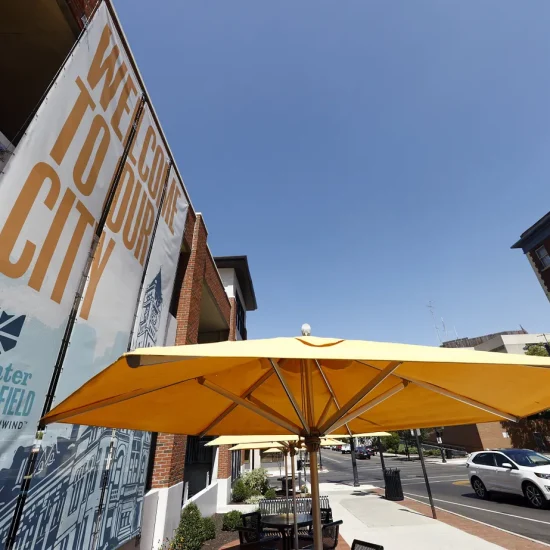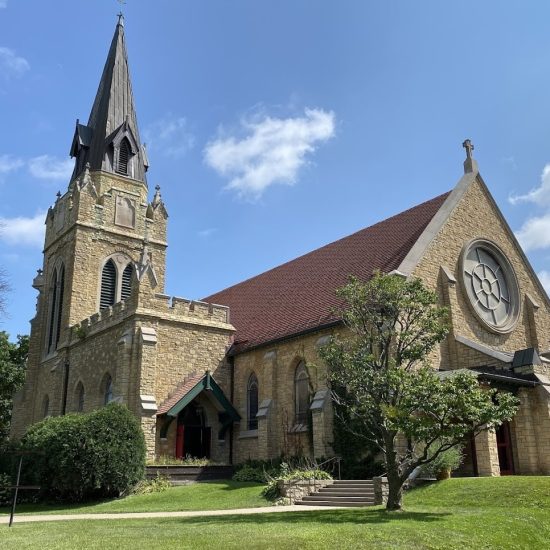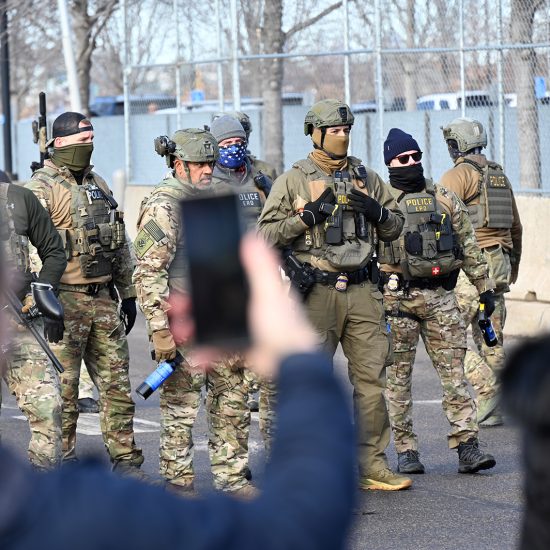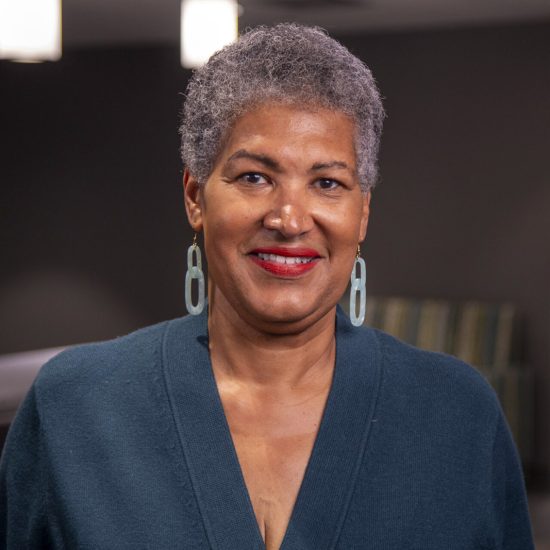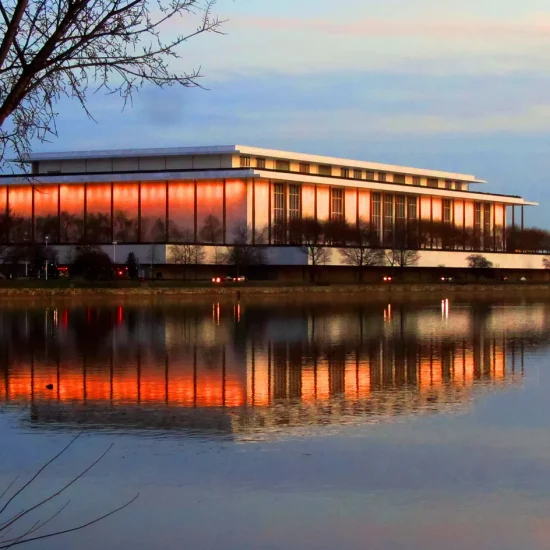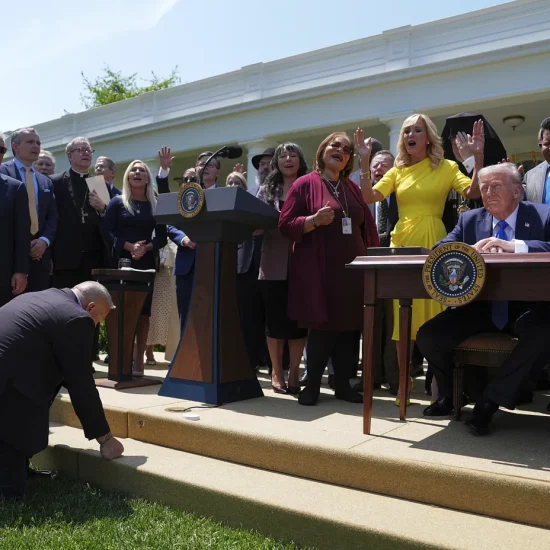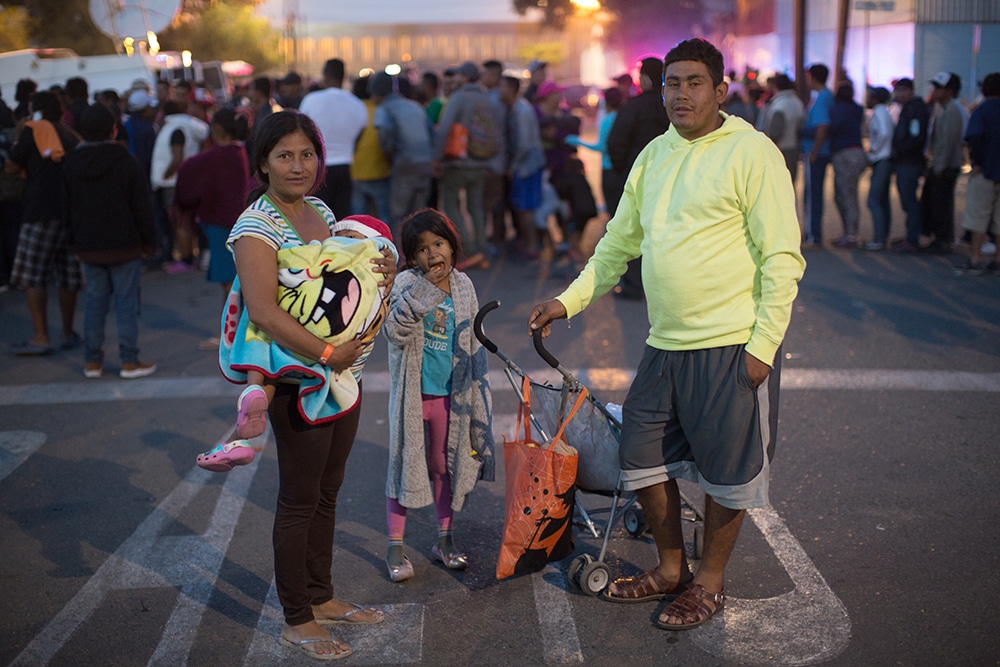
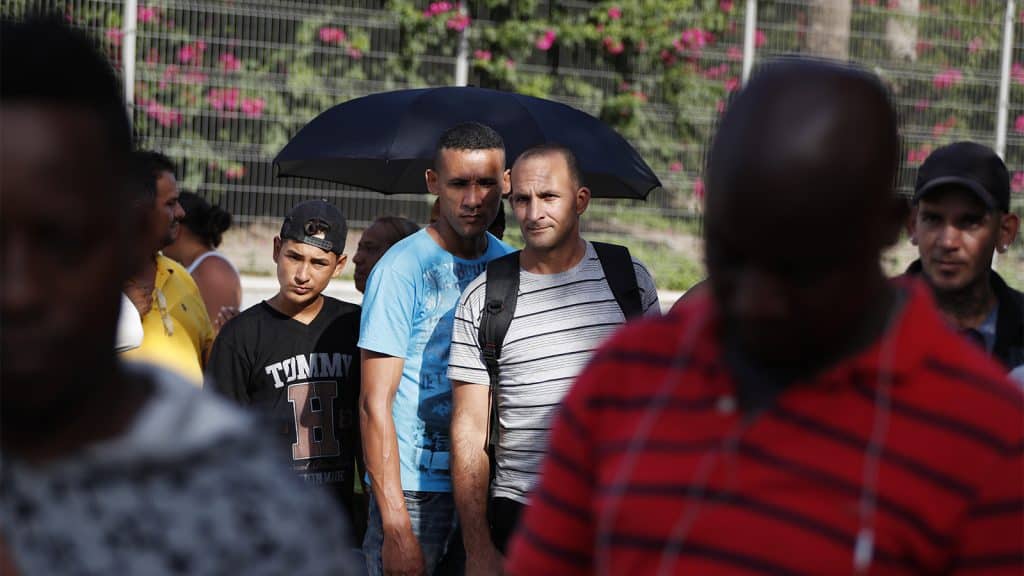
Migrants from various countries wait in the men’s line to receive food donated by volunteers who provide daily meals, at the Puerta Mexico international bridge, in Matamoros, Tamaulipas state, Mexico, on June 27, 2019. Hundreds of migrants from Central America, South America, the Caribbean and Africa have been waiting for their number to be called at the bridge in downtown Matamoros, to have the opportunity to request asylum in the U.S. (AP Photo/Rebecca Blackwell)
(RNS) — As the director of disaster relief for the Southern Baptists of Texas Convention and a former resident of the border region himself, Scottie Stice and his colleagues have spent years giving aid to migrants along the U.S.-Mexico border.
But these days, said the Texan, “We have had an increase in numbers.”
Waves of Baptist volunteers from across the Mid- and Southwest have flooded his state in recent weeks to offer aid to the influx of largely Central American migrants crossing the U.S.-Mexico border.
The deluge of Southern Baptists and other evangelical relief groups has surprised some. Though a vast faith-based network of organizations focuses its work on the border, the Catholic Church has historically dominated the aid operation in Texas. Many mainline Protestant groups also expanded their involvement in the region around the time when the first major surge of Central American migrants reached the U.S.-Mexico border in 2014.
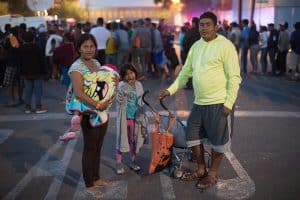
A Honduran migrant family on arrival at the Benito Juárez sports complex in Tijuana, Mexico, in Nov. 2018. Photo courtesy of ACT/Sean Hawkey
But evangelicals have garnered less attention — perhaps because they are more likely than any other faith group to believe that the U.S. does not have a responsibility to welcome refugees, according to the Pew Research Center.
But Trump administration policies are changing the longstanding humanitarian efforts on the border, most recently by requiring many of those applying for asylum to wait out their asylum claims in Mexico instead of the United States.
Susan Krehbiel, who runs a program for refugees and asylum seekers under the Presbyterian Church (USA)’s Presbyterian Disaster Assistance program, pointed to recent news that Annunciation House, a faith-rooted group in El Paso that is also aided by Texas Baptists and the Salvation Army, was receiving fewer migrants in its “overflow shelter” and planned to put parts of its work “on hiatus.”
Krehbiel said the drop in migrant numbers in the region was partly due to factors like summer heat but also to the Trump administration’s “remain in Mexico” policy.
Alvin Migues, emergency disaster services director for the Texas division of Salvation Army, agreed that the policy is one of several factors that make migration numbers difficult to predict.
“I think it plays into it drastically,” he said.
Working on the Mexico side of the border can be difficult for mainline denominations such as the PCUSA, which often operate internationally through non-profit groups. The National Presbyterian Church of Mexico broke ties with the PCUSA in 2011 after the U.S. denomination voted to allow for the ordination of LGBTQ people.
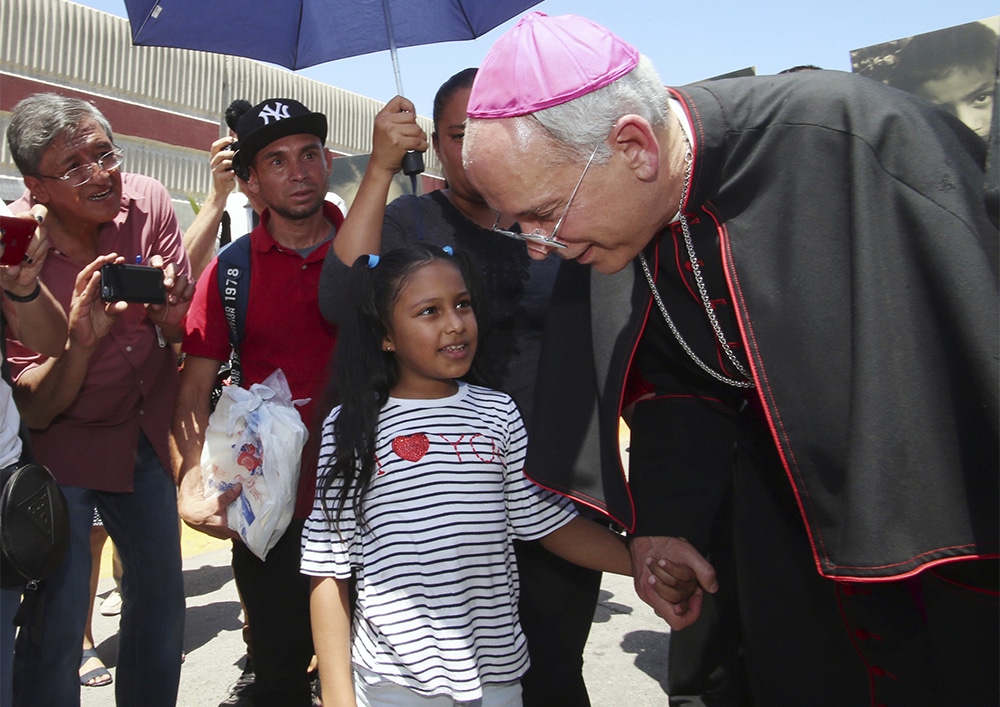
El Paso Catholic Bishop Mark Seitz talks with Celsia Palma, 9, of Honduras, as they walked to the Paso Del Norte International Port of Entry on June, 27, 2019, in Juarez, Mexico. Seitz escorted the girl, her parents and two siblings across the port of entry to U.S. immigration authorities so they could be processed into the U.S. (AP Photo/Rudy Gutierrez)
The Catholic Church retains robust partnerships on both sides of the border. So do the Baptists: Mike Carlisle, director of missions for the San Diego Southern Baptist Association, said his group has a missionary who teams up with local churches from the National Baptist Convention of Mexico, in Tijuana, Mexico, to offer food and showers for migrants currently trapped in bureaucratic limbo.
“For weeks our missionary single-handedly provided breakfast for those awaiting immigration processing,” Carlisle said. “He was asked by some of the officials there to expand his work.”
Migues said the Salvation Army, an international organization, recently convened a meeting in Mexico City that included discussion of enhancing its coordination with divisions on the Mexico side of the border.
But some observers, including Stice, said that evangelical groups have also become increasingly involved simply because of the political and religious debate over immigration.
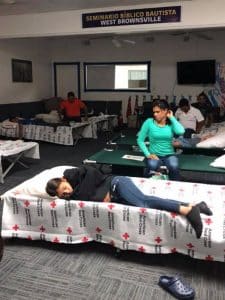
Migrants rest on cots at West Brownsville Baptist Church in Brownsville, Texas, in May 2019. Photo courtesy of West Brownsville Baptist Church
Stice said many Baptists and other evangelicals volunteer at so-called “release shelters” — facilities that offer short-term housing and food for immigrants after they are released from Border Patrol facilities but before they travel to a permanent location to await a court date.
One such shelter is operated by West Brownsville Baptist Church in Brownsville, Texas, taking in about 25 people per day. Another is located in Del Rio, where Texas Baptists and the Salvation Army are preparing for an influx of support from Samaritan’s Purse, an evangelical Christian humanitarian aid organization run by the Rev. Franklin Graham.
Stice said the volunteers typically help prepare and serve food at the shelters, as well as help keep shower units clean.
“(The migrants) come in and get something to eat, maybe some clothes, a shower if needed, and have a safe place to spend the night,” said Stice.
Krehbiel said that increased media attention has also led to an uptick in financial support from churches in other parts of the country.
“The major difference in the last couple of years is the increasing attention from churches to support (border work) financially,” she said, noting that Presbyterian groups also work with an Interfaith Welcome Coalition in San Antonio and partner with the legal group Al Otro Lado to help migrants know their rights.
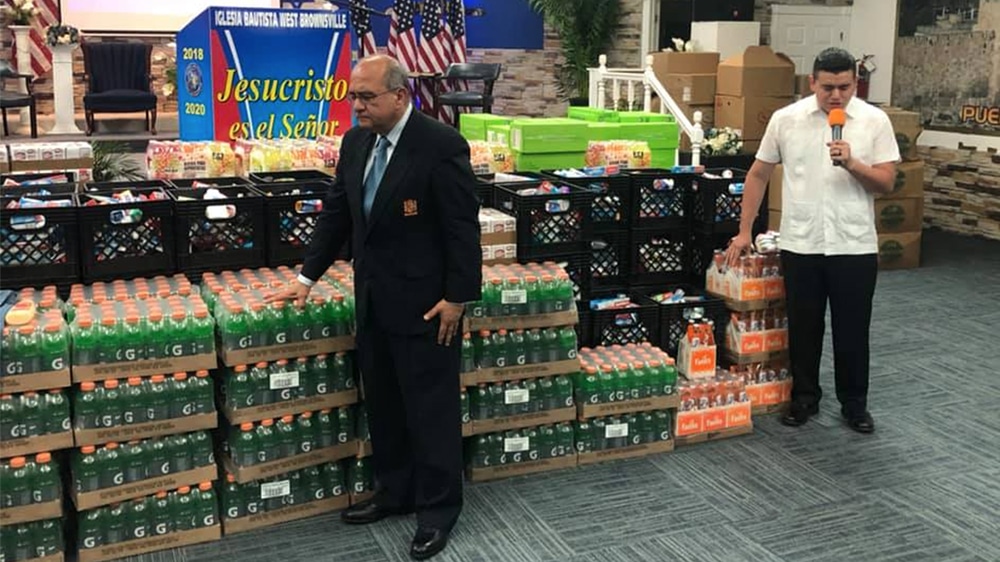
Prayers are said over items donated for migrants at West Brownsville Baptist Church in Brownsville, Texas. Photo courtesy of West Brownsville Baptist Church
Leaders from Muslim, Jewish, Christian and other faiths have also visited the border over the past few months to observe conditions there and participate in protests. The Rev. William Barber, head of the Poor People’s Campaign, recently announced plans to gather faith leaders along the border in late July to protest the administration’s immigration policies.
Scottie Stice, however, dismisses the politics of the border as the driving force behind Baptists’ commitment, arguing the motivation is primarily spiritual.
“It’s a biblical mandate,” he said.

